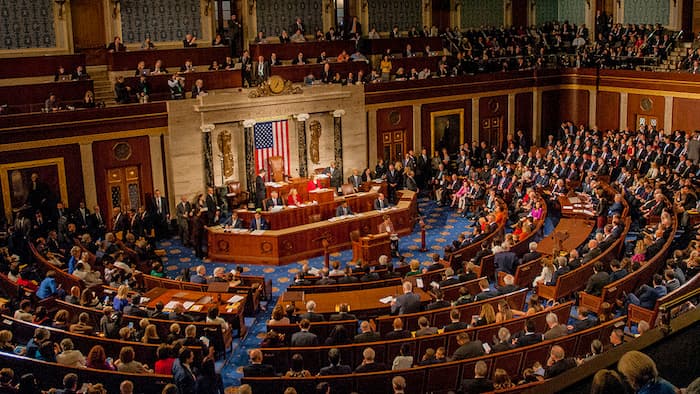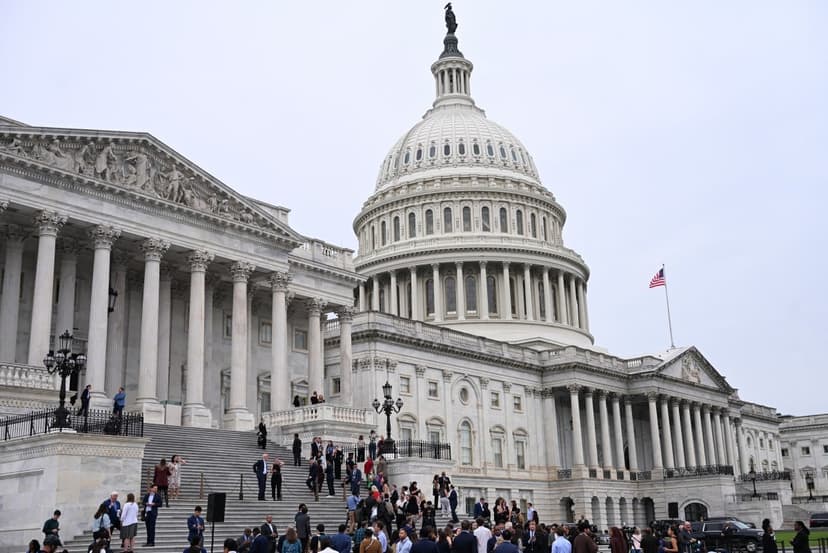
The US Senate has passed a bipartisan bill to end the 40-day government shutdown.
In a crucial procedural vote, senators pushed forward a bill initially passed by the House. This bill is set to be amended, aiming to fund the government until January 30th and bundle in three full-year spending packages. However, even if the Senate gives its final nod, the measure still needs another round of approval from the House of Representatives and President Donald Trump's signature. This whole process could easily stretch for several more days.
A key part of the deal involved a compromise between Republicans and a group of Democrats who had been holding out against their own party's leadership. Republicans agreed to a December vote on extending vital Affordable Care Act (ACA) subsidies. These subsidies are a lifeline for lower-income Americans, helping them afford private health insurance, and their expiration at year-end has been a major sticking point for Democrats throughout the funding battle. The bill cleared this procedural hurdle with a 60-40 vote, just enough to beat a potential Senate filibuster.
Before the vote, President Trump expressed optimism to reporters at the White House, stating, "It looks like we're getting very close to the shutdown ending."
This legislation brings good news for federal workers and their advocates: it would prevent federal agencies from firing employees until January 30th. It also puts a temporary pause on President Trump's ongoing push to shrink the federal workforce. Official records show that at the beginning of Trump's second term, approximately 2.2 million civilians were employed by the federal government. With the administration's downsizing initiatives, at least 300,000 employees are projected to leave their positions by the close of this year. Importantly, the bill promises back pay for all federal employees, a welcome relief for military personnel, Border Patrol agents, and air-traffic controllers who, among many others, have continued working without compensation since the shutdown began.
When the Senate reconvenes on Monday, Republican leaders plan to seek bipartisan agreement to fast-track the bill, hoping to bypass standard Senate rules and move directly to a final vote. Without this agreement, the Senate would have to follow its usual, slower procedures, potentially dragging the shutdown on into next weekend.
"It was a good vote tonight," Senate Majority Leader John Thune commented to reporters after Sunday's adjournment. "Hopefully, we'll get an opportunity tomorrow to set up the next votes. Of course, that's going to take some cooperation and consent."
Sources close to the discussions revealed that Sunday's crucial deal was brokered by Democratic Senators Maggie Hassan and Jeanne Shaheen of New Hampshire, along with Independent Senator Angus King of Maine. Senator Shaheen took to X (formerly Twitter) to share her thoughts: "For over a month, I've made clear that my priorities are to both reopen government and extend the ACA enhanced premium tax credits. This is our best path toward accomplishing both of these goals."
Curiously, Senate Minority Leader Chuck Schumer, the top Democrat, cast a "no" vote on the measure, a decision that sparked criticism from within his own party. Representative Ro Khanna didn't mince words on X, writing, "Senator Schumer is no longer effective and should be replaced. If you can't lead the fight to stop healthcare premiums from skyrocketing for Americans, what will you fight for?"
Sunday marked a grim milestone: the 40th day of the shutdown, making it the longest in U.S. history. This unprecedented halt has left countless federal workers without pay and severely disrupted essential services, from vital food aid programs and national parks to air travel across the nation. Critically, staffing shortages among air traffic controllers have fueled concerns about significant travel delays looming for the bustling Thanksgiving holiday season later this month.
Senator Thom Tillis, a North Carolina Republican, suggested that rising public frustration and the shutdown's economic toll ultimately propelled the Senate towards a resolution. "Temperatures cool, the atmospheric pressure increases outside and all of a sudden it looks like things will come together," Tillis remarked.
Meanwhile, White House economic adviser Kevin Hassett issued a stark warning: if the government shutdown drags on much longer, U.S. economic growth could dip into negative territory for the fourth quarter. He specifically highlighted the risk if air travel disruptions continue into the Thanksgiving holiday, which falls on November 27th this year.
All this Capitol Hill back-and-forth unfolded as President Trump reignited his efforts to replace ACA subsidies with direct payments to individuals. These subsidies, pivotal in helping ACA enrollment nearly double to 24 million since their expansion in 2021, have been a core sticking point in the shutdown saga. Republicans, however, have firmly maintained that they will only tackle this issue once government funding is fully restored. On Truth Social, Trump publicly slammed the subsidies, calling them "a windfall for Health Insurance Companies, and a DISASTER for the American people." He added that he stood "ready to work with both parties to solve this problem once the government is open."
As Americans gear up to shop for 2026 Obamacare health plans, they're facing a grim reality: analysts predict average monthly premiums could more than double. This dramatic increase is largely due to the imminent expiration of pandemic-era subsidies at the end of the year. However, with the ACA open enrollment period extending through January 15th, there's still a window of opportunity for legislative action to potentially extend these crucial credits into the new year.


